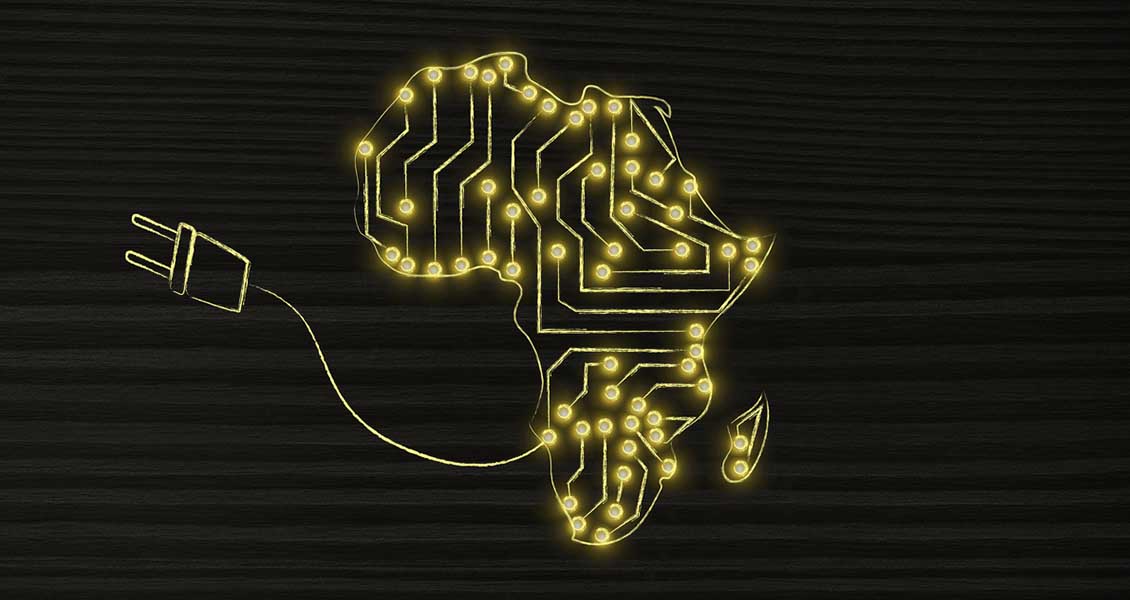Digitization: A Necessary Requirement for Africa’s Transformation
- October 15, 2020
- Posted by: Kedrus
- Category: Digital Transformation

Now that most governments have begun to execute reopening strategies. It is critical that their decision-makers capitalize on leadership and foresight. The crisis has created a conducive environment for Africa to reimagine fundamental aspects of its societies, Business, and government.
A key determinant of our success will require all stakeholders to act with a renewed purpose and have a clear road map of our journey to a new and better Africa.
We believe that there are certain key steps African stakeholders must take towards building Africas Next Normal. A major part of that step is Digitization.
The Secretary General of Morocco’s ministry of finance Zouhair Chorfi, has said “Digitalization is a great opportunity for Africa. It can transform Africa by increasing competitiveness, promoting strong integration, and reducing the cost of doing business.”
Digitalization promises numerous benefits to the African continent especially with regards to the realities operational in a post-Pandemic World.
Africa shows every sign of being ready for rapid economic transformation in the coming decade but countries need to digitize their economies and reform their tax systems to drive revenues and finance development.
If Africa will take advantage of digital transformation in other to redefine its outcome, we must quickly adopt digital channels of transaction and communication across all levels of business, government, and education. This will require that the necessary enabling environment is put in place.
Once digitalization is achieved, it will have a transformative effect across the African economy by reducing barriers to entry and expanding market reach for businesses, creating jobs, and boosting both domestic and foreign trade in goods and services.”
The fact that Africa needs to adopt digitalization is not a new discovery. As a matter of fact, it has been the major conversation in several international African conference meetings and summits. However, we find that a lot still needs to be done if this vision will be realized.
The truth be told, quite a number of African countries have made commendable progress in the journey of digitalization. This reality is predominant with countries in the East Africa community. Most of the countries in this bloc are growing at almost double the rate of those in the rest of the continent on the back of their investment in technology, infrastructure, and better fiscal policies that help startups to flourish. But a larger percentage of the continent still struggles with implementing digitalization and creating the right environment.
We have taken much care to critically consider the major bottlenecks that are limiting the actualization of this vision in most African countries and we recommend some steps that should be taken to overcome them.
Fix Infrastructure:
The stark reality of the African situation is that we have a very limited infrastructure for the implementation of a digital transformation strategy. Like the example we pointed out earlier, East Africa provides the rest of the continent with practical lessons. They have invested properly in technology, infrastructure, and better fiscal policies that make digitalization possible and easy. Just by putting the right infrastructure in place, Silicon Savannah a tech hub located in Nairobi Kenya and home to over 200 startups including tech giants like Microsoft and Intel has recorded over $1bn in revenue growth.
Some of the necessary infrastructure needed include High quality affordable broadband connection and stable electricity. Only 43% of the continent has access to electricity, less than half the global access rate of 87%, according to the latest survey by the World Bank. The number of people without electricity is also expected to snowball with Africa’s population boom.
Another issue is the affordability of the internet. Most African countries lack access to an affordable and reliable broadband connection. The internationally agreed target is for 1GB of data to cost no more than 2% of the average national monthly income. In Africa, this currently stands at 8.76%, compared to 3.5% in Latin America or 1.54% in Asia. Those who can afford to pay for it have to pay very exorbitant fees in other to enjoy high-quality internet connectivity all through the year. This is a major limitation of the digital transformation agenda.
So African governments must quickly act by partnering with the necessary stakeholders to ensure that the right infrastructure and policies are put in place that will set the stage for the implementation of the digital economy.
Enforce Public Sector Leadership:
Secondly, African governments must actively begin to promote the use of digital channels across the public sector. They need to replace traditional approaches to delivering citizen-centric services with innovative solutions powered by technologies like cloud computing and Artificial intelligence. Cloud computing will enable African governments to not only streamline their processes and service delivery but enhance data collection and analytics.
Government data collection and analysis can empower industries to compete on a global level by making information available on current trends and predicting future opportunities. In Morocco, for example, the government has taken the lead. They setup a service known as E-Notary that digitizes the top five government administrative services. Through their biometric E Kiosk, citizens can create a one-off biometric link to their online profile allowing them to access services remotely. This is a very commendable progress for an African country.
A large percentage of Public sector activities are not yet digitized in most African countries. So government leaders must lead the way by ensuring that the public sector uses digital channels and tools to collect, manage, and use data. They can encourage the adoption and mass usage of digital IDs, signatures, and registries. The right infrastructure needs to be put in place in other to ensure that the public sector can easily digitize its processes. Government leadership must also seek critical partnerships with the private sector to facilitate the implementation of this agenda.
Prioritize Digital Skilling:
As governments continue to invest in digital transformation, it is critical that they train their citizens on how to optimize these innovations. With more tasks becoming automated, the skills required to interact and manage the system must be provided to the users In other to ensure great user experience and mitigate against any possible objection to adopt this technology on the part of the citizens. African leaders need to embark on massive digital skilling in other to enable the usage of digital channels. The realities of the new normal has made the possession of basic digital skills a necessity.
Government leaders in concerned African countries must speed up the acquisition of the necessary digital skills by their citizens. The African workforce will benefit immensely from reskilling programmes due to the fact that the majority of them are faced with huge skills deficiency in the wake of the new normal.
Governments can partner with private institutions to provide the necessary training infrastructure that is needed. A good example of possible partnerships will be initiatives like Microsoft’s 4Afrika School of Government. This initiative is focused on facilitating technological capacity building for civil servants. Their aim is to ensure that public servants embrace innovation and become change agents in the public sector space.
Africa’s economies cannot afford to miss out on the digital revolution. Government leaders must consistently seek for ways the continent can equip their economies to cash in on the opportunities. With innovation hubs sprouting up throughout the continent, solutions are being found to solve uniquely African problems and dissolve barriers to trade, financial services, and capital. But governments need to do more to seize on the opportunities of the global digital economy, which is set to grow to over $23 trillion by 2025. By prioritizing the right things, the journey towards a digital economy can become a lot faster.




